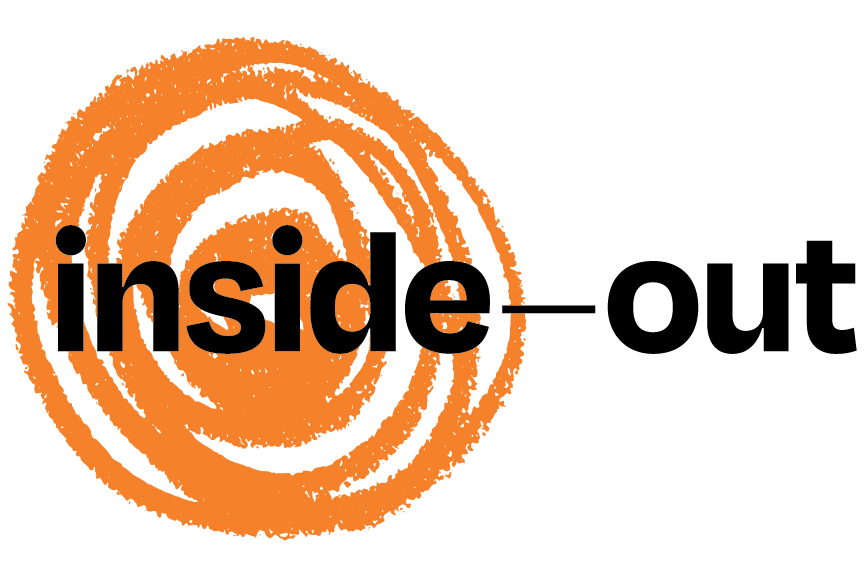How to pitch a big vision without setting yourself up to let people down
Welcome Entrepreneurs. I’m so glad you’re here.
I was speaking to a room full of entrepreneurs recently, and one founder asked me: “You talk all this about owning your uncertainty. That’s all well and good, but there are definitely times when you just have to know your stuff, and you can’t be uncertain. In some cases, you have to be definitive and have conviction, right? Like when you’re pitching to an investor.”
I smiled. I know all too well how scary it can be to be honest with people about just how much we don’t know, especially in startupland where we don’t know most of what we’re doing everyday. I lived in terror of that feeling early in my professional life, especially with investors.
“No,” I said, gently. “It seems to me that there’s no circumstance in which it’s a good idea to project a level of certainty that you don’t actually have.”
The founder raised an eyebrow. “But if you don’t know if it’s going to work, why would anyone follow you?”
Good question. If you don’t know the answer, how can you lead?
Another good question: if you don’t know the answer, what might it cost to pretend you do?
Let’s dive into this week’s article.
Confident Humility (OR: How to Pitch Your Company)
“How will your company become a unicorn?”
The question seems innocent enough, normal enough. And it is normal. But it’s not innocent. There’s a trap inside, just like there’s a trap in any question that asks a founder to predict the future with certainty.
No matter how much you know about your business, no matter how compelling the opportunity or how confident you feel, you cannot predict the future. Nobody can.
Describing a spectacular outcome and a straight path to get there can seem like the norm when we pitch our companies. But predicting the future with certainty carries a real cost: besides being by definition inaccurate, it may also cause you to hold onto a bad strategy for too long and sink your company (not to mention submarine trust in your relationships).
The Allure of Certainty
We humans hate uncertainty. A famous study showed that rats (and humans) preferred receiving bad outcomes (shocks to the brain) in the present to the possibility of receiving bad outcomes at some later time in the future. (Ironically, this makes complete sense evolutionarily — better to have the terrible outcome we’re already living with than risk a bad outcome we might not survive). We hate feeling like we don’t know what’s coming to such a degree that we are immensely attracted to folks who seem certain. Folks who seem like they know where they’re going and how it’s all going to work.
Given that, it’s no wonder startup founders project certainty in order to attract others — employees, customers, investors. It feels so good to follow others who seem sure of themselves that a new leader can’t help but think it’s the certainty itself that makes them worth following. We end up with so many contemporary Alexanders, charging ahead out of firm conviction (of necessarily dubious accuracy, given the uncertainty of startups), and compelling his team to follow.
The Pitfalls of False Certainty
Certainty gets coffee, because certainty is a closer. But as effective as certainty is at closing deals, it’s equally effective at closing minds.
The minute we fixate on a singular solution, not only do we stop looking for alternatives, our minds (specifically a part of our minds called the Reticular Activating System, or RAS) actually begin to filter out any evidence to the contrary (if this seems far fetched, think of what it’s like to present what seems like irrefutable evidence to someone on the other side of the political aisle). We can’t allow ourselves to entertain the possibility that our initial answers might have been incorrect, lest we have to reexamine the entire chain of related beliefs and risk unraveling much more than a single answer.
So when someone asks you how your company will become a unicorn, and when you fall for the trap and tell them precisely how you’ll get there with just a few more product releases and biz dev hires, you’re locked in. You have a roadmap, and your RAS does its thing and starts to filter out anything that’s not consistent with it.
If everything goes according to plan, there’s no issue. But the moment something off-script happens (read: every damn day), your previous prediction may prevent you from seeing it at all.
This happened to me. Early in the life of my third company, I pitched investors on a very specific go-to-market strategy for our business. We knew that sales reps sold $X and cost us $(X*0.4), so it seemed clear that the key to scaling was just hiring more reps. Our early sales data backed up my assertion, so I was confident it really was that simple. I told our GTM story with certainty, backed it up with facts, and investors believed me. Hell, I believed me.
We hired dozens of reps. Some of them hit the metrics our early reps had, and some missed. So we fired about half of them for poor performance and hired more, thus beginning a vicious cycle of hiring/firing that incinerated cash and inhibited our efforts to scale. In hindsight, the data from our initial scaling process had been all over the map, but we could only see the information that validated our model, because that’s what we were looking for.
I remember saying things like “if you ignore these reps and just focus on the ones who really executed the plan, it looks good,” and “we just need to hire better reps. Make more of our reps look like these.” It’s remarkable how effectively one can ignore things one doesn’t want to see.
The data points from the 50%+ of reps that didn’t confirm our hypothesis were indicators that we didn’t yet understand reality. If we had actually been analyzing the data objectively, they’d have told us that we needed to update our understanding of reality and iterate on our GTM strategy accordingly. But because we were looking at the data not as scientists, but as politicians (Grant’s framework) we saw only the data that we were looking for and ignored the rest. Our need to find data confirming our story may have cost us millions in capital.
Balancing Confidence and Humility
This doesn’t mean you either project bulletproof confidence despite your uncertainty, or you go in unsure of yourself and fail to gain any support at all. Though appealing in its simplicity, confidence versus humility is a false choice. From Adam Grant’s Think Again:
In rigorous studies of leadership effectiveness across the United States and China, the most productive and innovative teams aren’t run by leaders who are confident or humble. The most effective leaders score high in both confidence and humility. Although they have faith in their strengths, they’re also keenly aware of their weaknesses. They know they need to recognize and transcend their limits if they want to push the limits of greatness.
In other words, the best leaders are both confident and humble. They are confident, even (especially) when they’re uncertain, because their confidence is rooted not in their ability to predict the future, but in their ability to navigate the uncertainty to come. Some leaders hide the areas in which they are unsure, lest they get challenged and their story fall apart. But the most effective leaders own their uncertainties, knowing that uncertainties are unavoidable, and confident in their ability to figure shit out.
Crafting Your Compelling Pitch
So what does this look like?
Consider these two pitches. First, Founder A gives us a typical investor pitch, brimming with the confidence that comes with limited data:
“We’ve got 100 customers at a $100 CAC, each paying $200/mo. There are tens of millions of target customers online, so all we need to do is scale up our spend on Facebook ads and we’ll have a $100m company.”
Sounds great, right? To his credit, Founder A does tell a compelling story, and unsophisticated investors might bite. But he skims over all sorts of unknowns and risk areas, which if things don’t go according to plan (hint: they never go according to plan) sets him up for hard times. Plus, if a savvy investor challenged the assertion that FB was all that was needed to take the company to the moon, the founder would be immediately put on the defensive.
Now check out how Founder B pitches the same business:
“We’ve got 100 customers at a $100 CAC, each paying $200/mo. If those numbers hold, we’ll have a rocketship on our hands, so we’re going to invest in scaling Facebook ads as long as the numbers hold. Even if numbers change as we make our way up the adoption curve, we believe this early success is indicative of strong demand for our product, which will drive acquisition as we build a sophisticated marketing machine.”
Founder B presents the same data, but instead of shying away from the risk, she leads with it: The numbers might not hold. By owning this uncertainty, and then describing how the team plans to succeed even if the data changes, Founder B creates resilience in her plan. While Founder A’s pitch sets him up either to ignore disconfirming data in an effort to prove an incomplete story (which I can attest happens to the best of us), or disappoint the investor by whiffing on a key aspect of his go to market strategy.
“How will your company become a unicorn?”
The next time you spot the trap, “How will your company become a unicorn?” or any other question that asks you to predict the future, I invite you to smile and confidently own your uncertainty:
“I don’t know. The current data makes me think that it might happen this way. But if not, we have a plan for that, too.”
Why would someone follow someone who answers like that?
Because they see that you have the same doubts as they have, and you’re betting your life on it anyway. They follow not because you’ve deluded them into believing you know something you don’t, but because you are just like them, confronting uncertainty. And, having done the work to learn just how much you don’t know, you are confident in your ability to navigate the unknown, anyway.
WANT TO DIVE DEEPER?
If you liked this, check out this list of my top posts, read and shared by thousands of entrepreneurs.
Here are a few of my favorites:
Executive Coaching for Entrepreneurs
There’s a reason every elite athlete in the world works with a coach. You need more than one perspective to see your best work.
I’m an executive coach and the founder of Inside-Out Leadership, a boutique leadership development agency supporting founders to rapidly scale themselves as leaders, so they can thrive professionally and personally as their company changes the world. Leveraging 15-years as a founder/CEO and a decade of meditation & mindfulness training, I have helped leaders from companies across the world, funded by some of the world’s top venture funds, to design a more conscious life and make key changes to improve their performance and satisfaction. I coach entrepreneurs how I want to be coached:
Focused on the person, not the role.
Focused on results, without the fluff.

